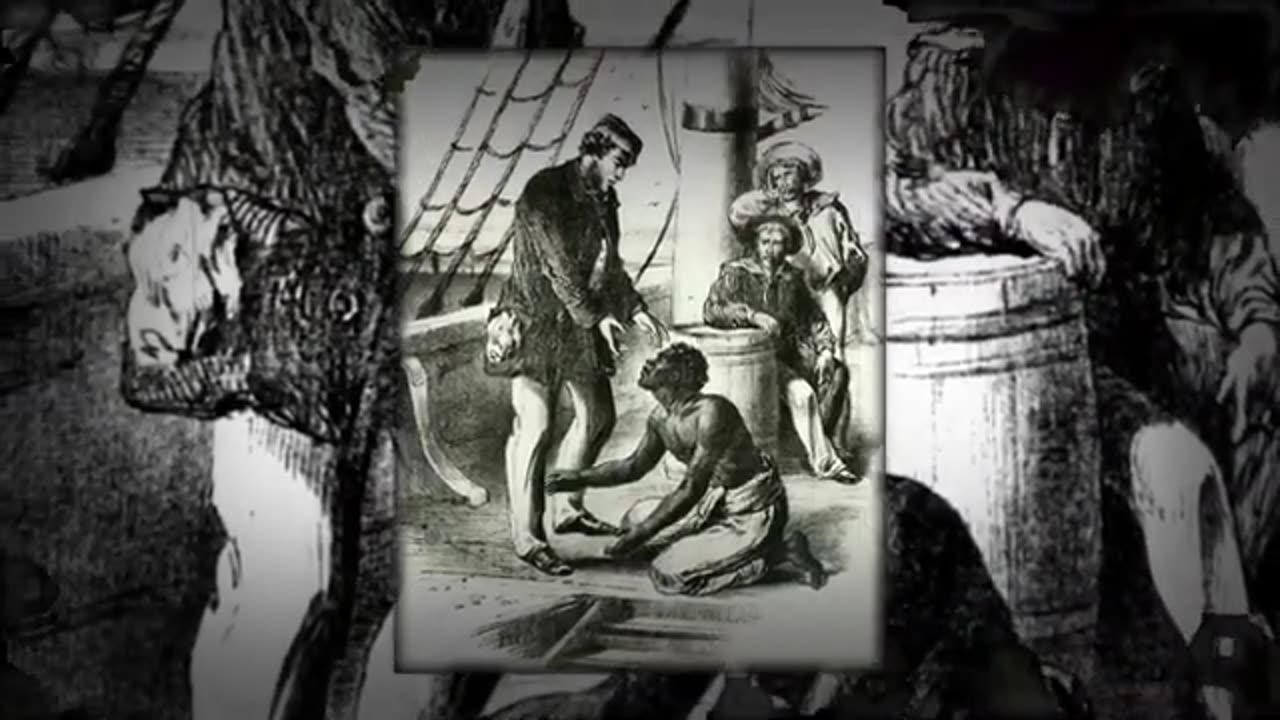Premium Only Content

Exploring the Hidden History: Distinguishing Black Native Americans from African Americans
Have you ever pondered the origins of your ancestry as a Black individual? Were your ancestors part of the original Black Native American tribes, or were they brought from Africa through the horrors of the Transatlantic slave trade? Today, many Black Americans face confusion about their heritage, a confusion perpetuated by historical records and governmental systems that have done little to clarify these ancestral lines.
If you ask your elders—your parents or grandparents—you may hear claims of being descended from Native Americans. Equally possible, you may be told your roots trace back to Africa. But which is the truth, and who, indeed, are the real Black Americans?
The question of "Who are the true Black Americans?" sheds light on the often-overlooked differences between Native Black Americans and African Americans. Though both groups are connected by a shared Black identity, their origins and cultural histories follow distinct paths. A deeper exploration of these distinctions offers a richer understanding of Black American identity.
African Americans, the descendants of enslaved Africans, are one of the most recognizable Black groups in the United States. Their ancestors were forcibly brought to American shores via the transatlantic slave trade, starting in the 1600s. This legacy of slavery, systemic oppression, and racial injustice profoundly shaped the African American experience. Despite enduring brutal conditions, from the plantation fields to the Jim Crow era, African Americans rose to fight for civil rights and have left an indelible mark on the nation's history. Figures like Martin Luther King Jr., Harriet Tubman, and Malcolm X embody the resilience and triumph of African Americans, whose history is inseparable from the broader history of the United States.
On the other hand, Native Black Americans, also known as Black Native Americans, Afro-Indigenous People, or African-Native Americans, trace their origins to different historical narratives. These are Black individuals who were part of Native American tribes long before the transatlantic slave trade gained momentum. Some Native Black Americans are the descendants of African peoples who arrived in the Americas long before European colonization, while others intermarried with Native tribes or found refuge among them as free people. For instance, tribes such as the Cherokee and Seminole were known to include Black members, some of whom were warriors or leaders, while others offered sanctuary to escaped African slaves.
Unlike African Americans, who were enslaved and subjected to brutal exploitation, Native Black Americans often enjoyed a degree of freedom and autonomy within their respective tribes. This independence allowed them to retain cultural traditions and establish distinct social systems. However, Native Black Americans were not entirely shielded from the ravages of colonization and the institution of slavery. In some cases, Native tribes in the southeastern United States participated in slavery, further intertwining their history with that of African Americans.
What unites both groups is their shared African ancestry and long-standing presence on the American continent. Yet, the differences between them lie in their unique historical trajectories: African Americans are inextricably tied to the transatlantic slave trade and the long struggle for civil rights, while Native Black Americans represent a lesser-known chapter of history that merges Indigenous and African heritage.
Ultimately, both groups are undeniably real Black Americans. Their contributions to the culture, history, and fabric of the United States are profound, though expressed in different ways. To fully appreciate this shared yet distinct legacy, it is essential for Black individuals to delve into the depths of Black history. Understanding the impact of slavery, reading Black literature, and watching documentaries on Black culture reveal the challenges, resilience, and triumphs of Black communities. Embracing Black identity means recognizing the full richness and diversity of this heritage, empowering individuals to shape their own narratives and advocate for justice in a society built on the struggles and successes of their ancestors.
-
 DVR
DVR
In The Litter Box w/ Jewels & Catturd
22 hours ago1 TRILLION! | In the Litter Box w/ Jewels & Catturd – Ep. 733 – 2/3/2025
15.8K16 -
 1:38:44
1:38:44
The Quartering
3 hours agoTrump's Tariffs Already Work, Blackhawk Pilot Coverup, DNC Makes Insane David Hogg Appointment
43K28 -
 LIVE
LIVE
Dr Disrespect
4 hours ago🔴LIVE - DR DISRESPECT - TARKOV - ZERO TO HERO RAIDS ONLY
3,933 watching -
 1:13:51
1:13:51
Candace Show Podcast
3 hours agoEXCLUSIVE! Did Ryan Reynolds Extort Hollywood Execs? | Candace Ep 143
45K45 -
 LIVE
LIVE
Darkhorse Podcast
3 hours agoThe 263rd Evolutionary Lens with Bret Weinstein and Heather Heying
884 watching -
 9:37
9:37
Silver Dragons
2 hours agoGoodbye Cheap Silver - How the Tariffs Will Change Stacking Forever
2.21K -
 37:33
37:33
CryptoWendyO
2 hours ago $0.47 earnedWORST DAY IN CRYPTO HISTORY $10 Billion in Liquidations!
5.65K6 -
 57:01
57:01
PMG
3 hours agoHannah Faulkner and Dr. Bryan Ardis | Don't Fall For the Bird Flu!!!
5.99K -
 1:18:00
1:18:00
Russell Brand
1 day agoUFOs, Whistleblowers, and Government Lies – The Truth with Jeremy Corbell – SF530
174K68 -
 1:57:47
1:57:47
The Charlie Kirk Show
4 hours agoThe Most Beautiful Word in English + Confirm Tulsi! | Navarro, McCain, Posobiec | 2.3.2025
169K49